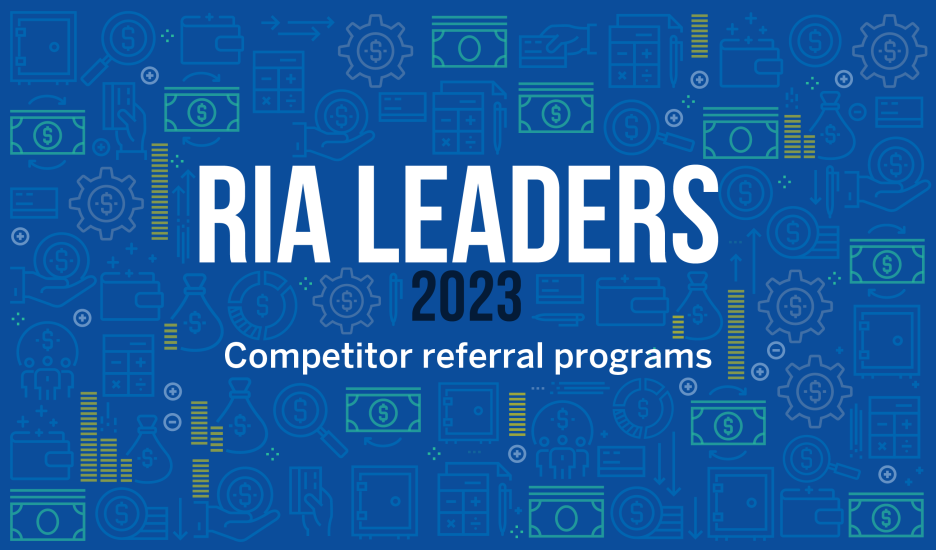The referral programs operated by the retail wealth management and custodial arms of Charles Schwab and Fidelity Investments provide tens of thousands of leads each year.
However, only certain registered investment advisory firms that meet Schwab's and Fidelity's criteria and pay sizable fees can gain access to that pool of new potential customers, according to
Scroll down the slideshow below for a deeper background about how Schwab's and Fidelity's competitors say they're developing their own potential RIA referrals, along with how the two giant firms, members of their networks and other experts describe the programs.
And see other RIA Leaders 2023 coverage:






